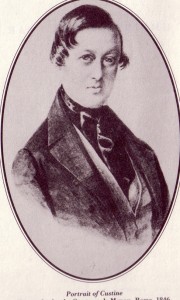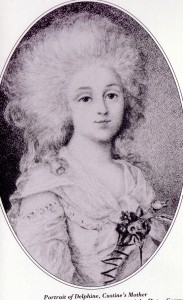 I have just finished reading the book “Empire of the Czar” (A Journey Through Eternal Russia in 1839) by the Marquis de Custine, Copyright @1971 Princeton University Press, Published by Doubleday, New York, 1989. Listen to the song Old Russia
I have just finished reading the book “Empire of the Czar” (A Journey Through Eternal Russia in 1839) by the Marquis de Custine, Copyright @1971 Princeton University Press, Published by Doubleday, New York, 1989. Listen to the song Old Russia
The book was banned in Russia, where even discussion of it was forbidden.
Why? Because of tormented mind of the author as he was born in 1790, on the eve of the most harrowing period of the French Revolution. He might be described, as we see his life presently, as an emotional casualty of the Terror. His grandfather and his father were guillotined, his mother who had stood loyally by her young husband, visiting him in prison down to the last night, was herself taken and thrown into the death house after his execution. She escaped only narrowly, almost miraculously, the fate of her father-in-law and her husband. Astolphe was then two or three years old. The solitary mother was eventually released and brought up her beloved son with all her affection, attention, and protective patronage which she had. She was rich, powerful and beautiful. Later he had been married and had a son, he was actually fond of his young wife, but when she  suddenly died in 1823, something gave way within him. Other impulses, too long repressed, broke through with great and dangerous violence. He became homosexual. In 1826 his little son would die, and then six months later his shattered and broken-hearted mother as well. He learned to accept his exclusion from the aristocratic society of Paris. He sought fulfillment, for the rest of his life, in travel, in literature, and in religion.
suddenly died in 1823, something gave way within him. Other impulses, too long repressed, broke through with great and dangerous violence. He became homosexual. In 1826 his little son would die, and then six months later his shattered and broken-hearted mother as well. He learned to accept his exclusion from the aristocratic society of Paris. He sought fulfillment, for the rest of his life, in travel, in literature, and in religion.
Custine was never a successful writer, and the above mentioned book was of no success either at his life and later. His hatred for the Russian autocracy which made a Russian character or vice verso. The influence was reciprocal: the Russian government could never have been established elsewhere than in Russia; and the Russians would never have been become what they were under a government differing from that which existed among them. Why the Russians did not resist? Why? Why? Custine tried to seek the reasons in the Asiatic origin, and violation of Peter the Great’ s reforms bringing the European customs and traditions into the Russian culture. Who knows? Time will tell. But in one thing we can agree with the poor Marquis when he journeyed through eternal Russia, his aristocratic dignity was suffering of vermin in the local inns, mud on the roads etc.,etc., his value of Russia’s beauty: “This evening, at sunset, I contemplated the spectacle from the Kremlin, the survey of which I have made with as much admiration, and almost as much surprise, as I did at first.
The city of men was separated from the palace of giants, by a glory like one of Corregio’s: the whole was a sublime union of the marvels of painting and poetry.
no images were found
The Kremlin, as the loftiest point in the picture, received on its breast the last streaks of day, while the mists of night had already enveloped the rest of the city. My heart beat with fear and admiration: I saw the whole cohort of the supernatural inmates of the fortress; their forms shone like demons painted on a ground of gold; they moved glittering towards the regions of night, from which they seemed about to tear off the veil; I expected to hear the thunder: it was fearfully beautiful.
The white and irregular masses of the palace reflected unequally the obliquely-borne beams of a flickering twilight. This variety of shades was the effect of the different degrees of inclination of different walls, and of the projections and recesses which constitute the beauty of the barbaric architecture, whose bold caprices, if they do not charm the taste, speak impressively to the imagination. It was so astonishing, so beautiful, that I have not been able to resist once more naming the Kremlin.” Listen to the song about new Moscow Dmitri Hvorostovsky- Moscow Nights
Enjoy the beauty of old Moscow in images and a new one.
no images were found